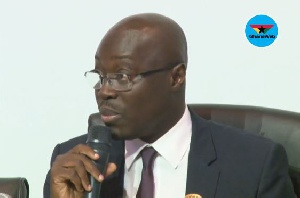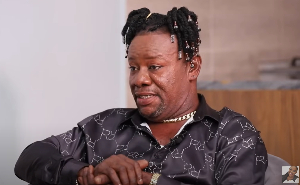The Finance Committee of Parliament is preparing to tackle the crisis in the country’s banking sector in a move that may feature public hearings to probe officials of collapsed banks.
According to the ranking member on Parliament’s Finance Committee, Cassiel Ato Forson, the leadership of the committee has resolved to investigate the crisis even though the House is currently on recess.
In the past few days, an investigative report has surfaced indicting the directors and managers of some of the banks for the collapse.
The reports outlined bad governance practices, incompetence and mismanagement by top management and board members for the collapse off at least two of the banks, UT and Capital banks.
Also, last week, the central bank revoked the licenses of five local banks.
Speaking to Citi News, the Ajumako Enyan Essiam MP says the committee is working on ironing out the modalities for the parliamentary probe.
“I can confirm to you that I have had a conversation with the Chairman of the Finance Committee and we have agreed that the Finance Committee of Parliament will have to consider some hearings relating to all the stakeholders concerning the collapse of the banks.”
Parliament is currently on recess, and the committees will have to agree on a timetable when the MPs arrive in Accra, he explained.
The committee will also need the blessings of the leadership of the MPs.
“For us to go on, we will have to get the leaders of Parliament; both the Majority and Minority leader to be in sync with our position,” Mr. Ato Forson.
In the past year, six banks have collapsed; Capital Bank, uniBank, Sovereign Bank, Construction Bank, The Beige Bank, UT Bank and Royal Bank.
A recent investigative report further entrenched the sentiment that the directors and boards of these banks were guilty of gross mismanagement.
The report noted that Capital Bank misused a significant amount of support from the Bank of Ghana (BoG) when it was struggling.
Among the flagged transactions were GHc 27.5 million used for business promotion and handled by a board member; transfers to IFS amounting to GHc 23.9 million, transfers to Nordea Capital amounting to GHc 65 million, and transfers to All-Time Capital amounting to GHc 130 million.
Part of this amount is believed to have been used to set up Sovereign Bank, which also collapsed.
On the UT Bank side of things, payments were made to former Chief Executive Officer and Director Mr. P.K Amoabeng from a loan defaulting entity, Kofi Jobs Limited.
The loans which amounted to GHC 5m were never disclosed to the Board of the U.T Bank.
The report also revealed that there was a significant amount of inter-group lending involving other subsidiaries of the holding company, UT Holdings, while connected party loans were made to some companies as listed below:
General News of Monday, 13 August 2018
Source: goldstreetbusiness.com

















